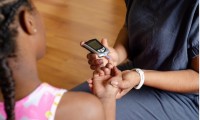-
WHO experts recommend the use of Takeda’s dengue vaccine QDENGA
- Source: drugdu
- 117
- October 10, 2023
-
FDA wants more testing in Philips recall
- Source: drugdu
- 109
- October 10, 2023
-
Catheter ablation beats drugs in J&J retrospective study of AFib heart failure risk
- Source: drugdu
- 140
- October 9, 2023
-
Amgen Fails to Secure FDA Adcomm Support for Full Lumakras Approval
- Source: drugdu
- 120
- October 9, 2023
-
Emergex and VIC to develop infectious disease therapies in the Gulf
- Source: drugdu
- 93
- October 9, 2023
-
FDA says Philips’ testing of recalled devices is inadequate
- Source: drugdu
- 113
- October 8, 2023
-
Lokavant receives $8 million from investment giant, Mitsui to expand AI platform
- Source: drugdu
- 117
- October 8, 2023
-
AstraZeneca’s Forxiga meets primary endpoint for T2D
- Source: drugdu
- 226
- October 7, 2023
-
Pfizer restarts production at tornado-hit plant—but supply squeezes are expected to persist
- Source: drugdu
- 193
- October 6, 2023
-
FDA clears Krystal Biotech’s IND for Type 1 AATD treatment KB408
- Source: drugdu
- 139
- October 4, 2023
your submission has already been received.
OK
Subscribe
Please enter a valid Email address!
Submit
The most relevant industry news & insight will be sent to you every two weeks.













